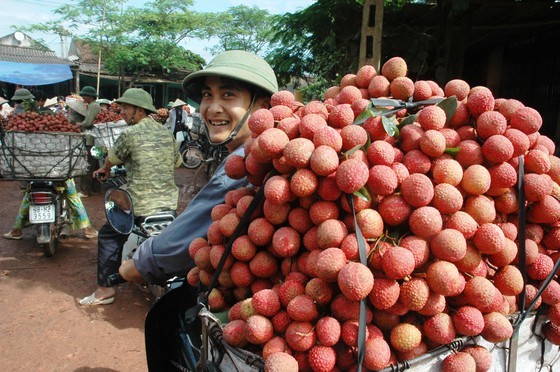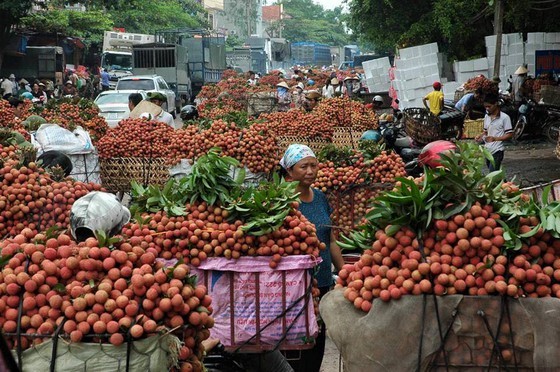
The office informed that according to the regulations on the prevention of the Covid-19 pandemic, the minimum isolation duration for foreigners entering Vietnam is 14 days.
However, for the seasonality, the time, and export volume of lychees not to be affected as the harvest time of lychees only lasts for one month, in June this year to be specific, the MARD has recently sent a document No.3562 to Deputy Prime Minister Vu Duc Dam, Head of the National Steering Committee for COVID-19 Prevention and Control, to ask for a special mechanism for Japanese plant quarantine experts that does not require them to be quarantined for 14 days at the hotel for Vietnamese fresh lychees to be able to be exported as requested by Japan.
The MARD will coordinate with the provincial People's Committee and the departments of Health of the two provinces of Bac Giang and Hai Duong to implement measures to ensure safety and disease prevention while Japanese plant quarantine experts work in these provinces following the guidance of the Steering Committee.
However, for the seasonality, the time, and export volume of lychees not to be affected as the harvest time of lychees only lasts for one month, in June this year to be specific, the MARD has recently sent a document No.3562 to Deputy Prime Minister Vu Duc Dam, Head of the National Steering Committee for COVID-19 Prevention and Control, to ask for a special mechanism for Japanese plant quarantine experts that does not require them to be quarantined for 14 days at the hotel for Vietnamese fresh lychees to be able to be exported as requested by Japan.
The MARD will coordinate with the provincial People's Committee and the departments of Health of the two provinces of Bac Giang and Hai Duong to implement measures to ensure safety and disease prevention while Japanese plant quarantine experts work in these provinces following the guidance of the Steering Committee.

According to the regulations of the Japanese Ministry of Agriculture, Forestry, and Fisheries (MAFF), Japanese plant quarantine experts have to go to Vietnam to directly inspect and supervise the plant quarantine and treatment procedures of each batch of lychees exported into Japan and only batches of lychees reported to have been successfully treated are allowed to export to Japan. Earlier, the MARD announced that Vietnamese fresh lychees could not be exported to the Japanese market as because of the Covid-19 pandemic, Japan could not send plant quarantine experts to Vietnam as scheduled.
The MARD is currently the agency to solve technical barriers to open the door for Vietnam's fresh lychees to the Japanese market. During the past 4 years, the MARD has worked with the MAFF of Japan to conduct experiments and technical discussions, and negotiate import conditions on plant quarantine.
On December 15 last year, Japan agreed to import fresh lychees from Vietnam. But according to the regulations, before exporting, it is necessary to check to register for disinfecting facilities that are eligible for the disinfection of lychees for export.
In March this year, MAFF authorized the Plant Protection Department under the MARD to carry out technical inspection and register for three treatment facilities. Accordingly, the Plant Protection Department launched inspections and sent a report to the MAFF in April this year.
On December 15 last year, Japan agreed to import fresh lychees from Vietnam. But according to the regulations, before exporting, it is necessary to check to register for disinfecting facilities that are eligible for the disinfection of lychees for export.
In March this year, MAFF authorized the Plant Protection Department under the MARD to carry out technical inspection and register for three treatment facilities. Accordingly, the Plant Protection Department launched inspections and sent a report to the MAFF in April this year.
























